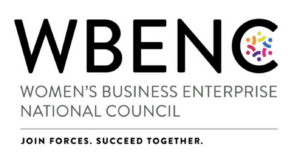
In the realm of cognitive development and learning, executive functioning plays a pivotal role in shaping one’s ability to manage tasks, solve problems, and regulate behavior effectively. Recognizing the significance of executive function skills in both academic and real-world settings, educators and coaches have devised integrated coaching routines aimed at enhancing these cognitive processes. In this article, we delve into the research behind each component of integrated executive functioning coaching routines, shedding light on their effectiveness in promoting cognitive growth and academic success.
Connection and Investment
At the heart of any coaching endeavor lies the establishment of a meaningful connection between the coach and the learner. Research has shown that fostering a sense of trust, rapport, and emotional investment is essential for facilitating effective learning experiences (Goleman, 1995). By building strong connections with their students or clients, coaches create an environment conducive to growth and collaboration, laying the foundation for successful coaching outcomes.
Assessment
A comprehensive assessment serves as the cornerstone of effective executive functioning coaching. Through rigorous evaluation of a learner’s strengths, weaknesses, and individual needs, coaches gain valuable insights into areas requiring intervention and support. Research-backed assessment tools, such as standardized tests, behavioral observations, and self-report measures, enable coaches to tailor their coaching strategies to the specific requirements of each learner (Diamond, 2013).
Instructional
Armed with a thorough understanding of a learner’s executive functioning profile, coaches employ evidence-based instructional techniques to target areas of challenge and promote skill development. Research suggests that explicit instruction, scaffolding, modeling, and feedback are effective strategies for teaching executive function skills (Dawson & Guare, 2010). By breaking down complex tasks into manageable steps and providing clear guidance, coaches empower learners to master essential cognitive processes.
Integrated Coaching
Integrated coaching routines involve the seamless integration of executive function strategies into various aspects of a learner’s academic and personal life. Research has demonstrated the efficacy of this holistic approach in fostering transferable skills and promoting generalization across contexts (McCloskey & Perkins, 2012). By embedding executive function coaching within the fabric of everyday activities, coaches help learners internalize strategies and apply them autonomously.
Strategy Development
Central to executive functioning coaching is the cultivation of adaptive strategies that enable learners to plan, organize, prioritize, and regulate their behavior effectively. Research indicates that teaching specific strategies, such as goal setting, time management, self-monitoring, and problem-solving, enhances executive function skills and improves academic performance (Duckworth & Seligman, 2005). Coaches play a crucial role in guiding learners through the process of strategy development and encouraging experimentation and refinement.
Recall & Independent Use
The ultimate goal of executive functioning coaching is to empower learners to apply acquired skills independently in real-world settings. Research suggests that promoting metacognition, self-reflection, and self-regulation facilitates the transfer of executive function skills from coached contexts to uncoached situations (Zelazo & Müller, 2002). By encouraging learners to reflect on their experiences, evaluate their progress, and adapt their strategies accordingly, coaches foster autonomy and self-efficacy.
Communication
Effective communication lies at the heart of successful executive functioning coaching. Research underscores the importance of clear, concise, and supportive communication in facilitating understanding, motivation, and engagement (Pressley et al., 2007). Coaches leverage active listening, questioning techniques, and empathetic communication to establish rapport, clarify expectations, and address learner concerns, fostering a collaborative coaching relationship. In addition, communication among stakeholders in a student’s life including parents and educators can help reinforce the strategy implementation required to build and solidify effective executive functioning neuropathways.
For more information about the Integrated Executive Function Coaching Program and work of Mary Miele, our founder and creator of the Integrated Executive Function Coaching Model, please email Mary Miele at mary@evolveded.com. To get set up with an Integrated EF Coach, please email Amy Nathan at amy@evolveded.com.


